Israel gears up for Lebanon ground invasion after another day of heavy strikes
Biden admits ‘all-out war’ is possible as Starmer warns British nationals in Lebanon: ‘The time to leave is now’
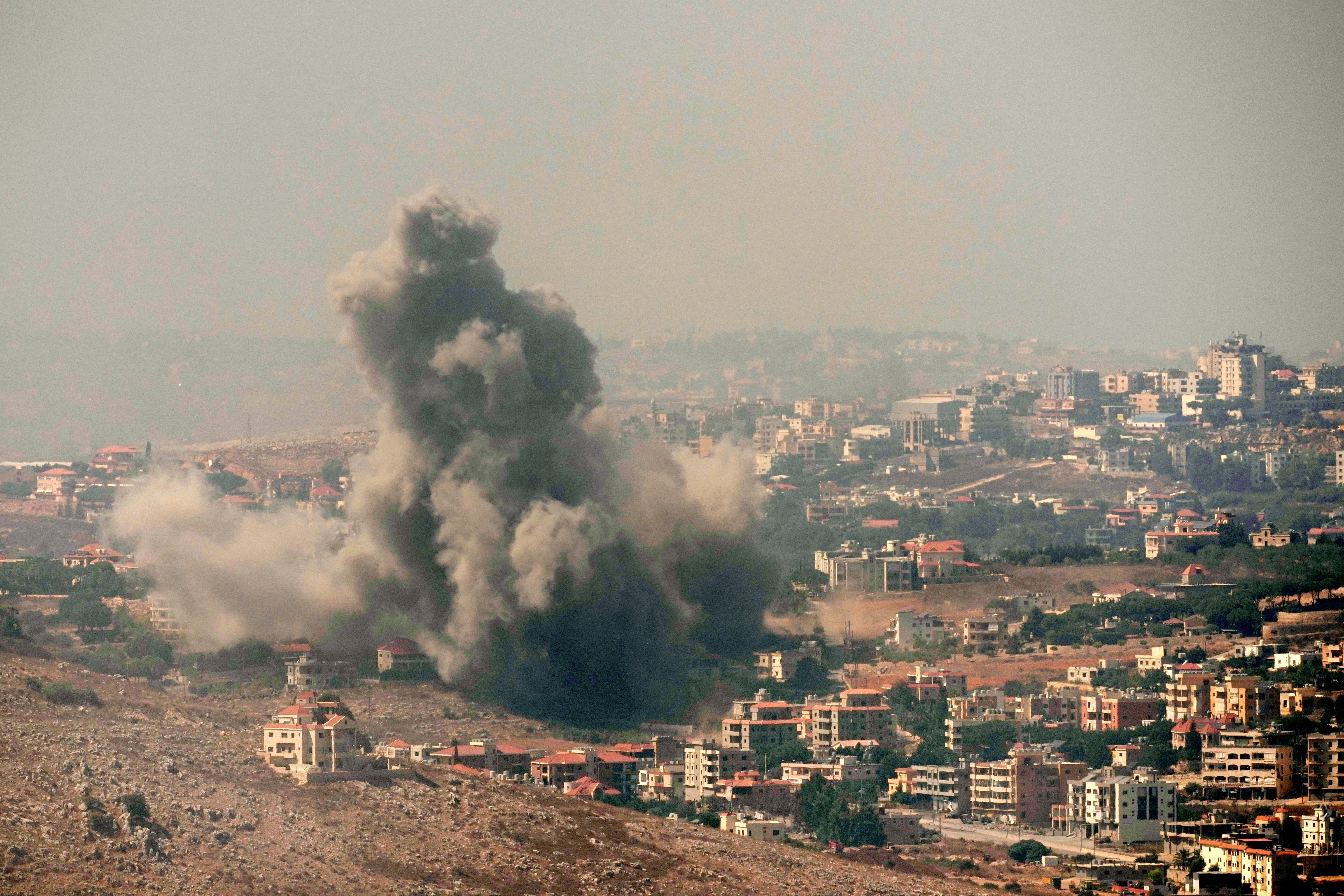
Your support helps us to tell the story
As your White House correspondent, I ask the tough questions and seek the answers that matter.
Your support enables me to be in the room, pressing for transparency and accountability. Without your contributions, we wouldn't have the resources to challenge those in power.
Your donation makes it possible for us to keep doing this important work, keeping you informed every step of the way to the November election

Andrew Feinberg
White House Correspondent
Israel is preparing for a potential ground invasion of Lebanon, army chiefs said on Wednesday, as US president Joe Biden admitted “all-out war” is possible and Sir Keir Starmer urged British nationals to leave the area immediately.
Airstrikes in Lebanon are laying the groundwork for a possible operation to push Hezbollah back and “safely return” displaced Israeli citizens, said Israeli army general Lt Gen Herzi Halevi.
He told troops on Israel’s northern border the military is “preparing the process of a manoeuvre, which means your military boots, your manoeuvring boots, will enter enemy territory, enter villages that Hezbollah has prepared as large military outposts”.
It came as tensions escalated further with Hezbollah launching its deepest strike yet into Israel, targeting Tel Aviv.
Following a day of heavy cross-border strikes, with Hezbollah firing dozens of projectiles into Israel, Lt Gen Halevi’s statement was the strongest yet that Israeli troops could move in.
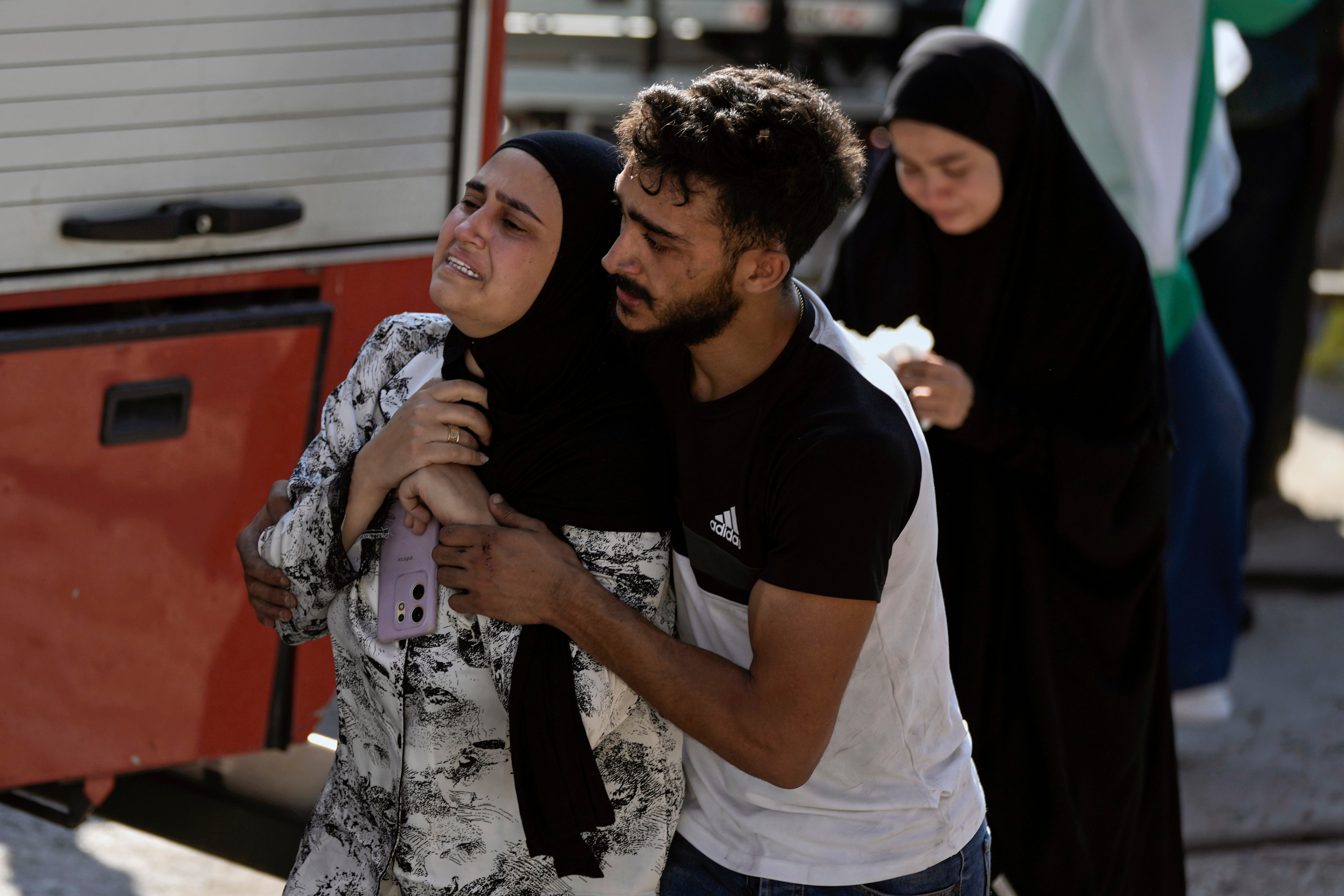
The intensified violence has led to hundreds of deaths in Lebanon, forced hundreds of thousands of Israelis in the north to huddle in air raid shelters and prompted the displacement of 90,000 Lebanese people from their homes.
The prime minister renewed his calls for British nationals to get out “while commercial flights are available” – though most, if not all, are sold out and others cancelled, leaving some stranded. “The time to leave is now,” he said.
If Israel bombs Lebanon’s only commercial airport in Beirut, as it did in the 2006 war against Hezbollah, it would sever the only means of escape. Britons in Lebanon have told The Independent how they are considering routes out of Syria as they see no other means of escape.
Rita El Kassis, 48, has a UK spouse visa and lives in London but is in Lebanon caring for a sick relative. “I’m trying not to panic but I have called the embassy and they said there is no plan”, she told The Independent.
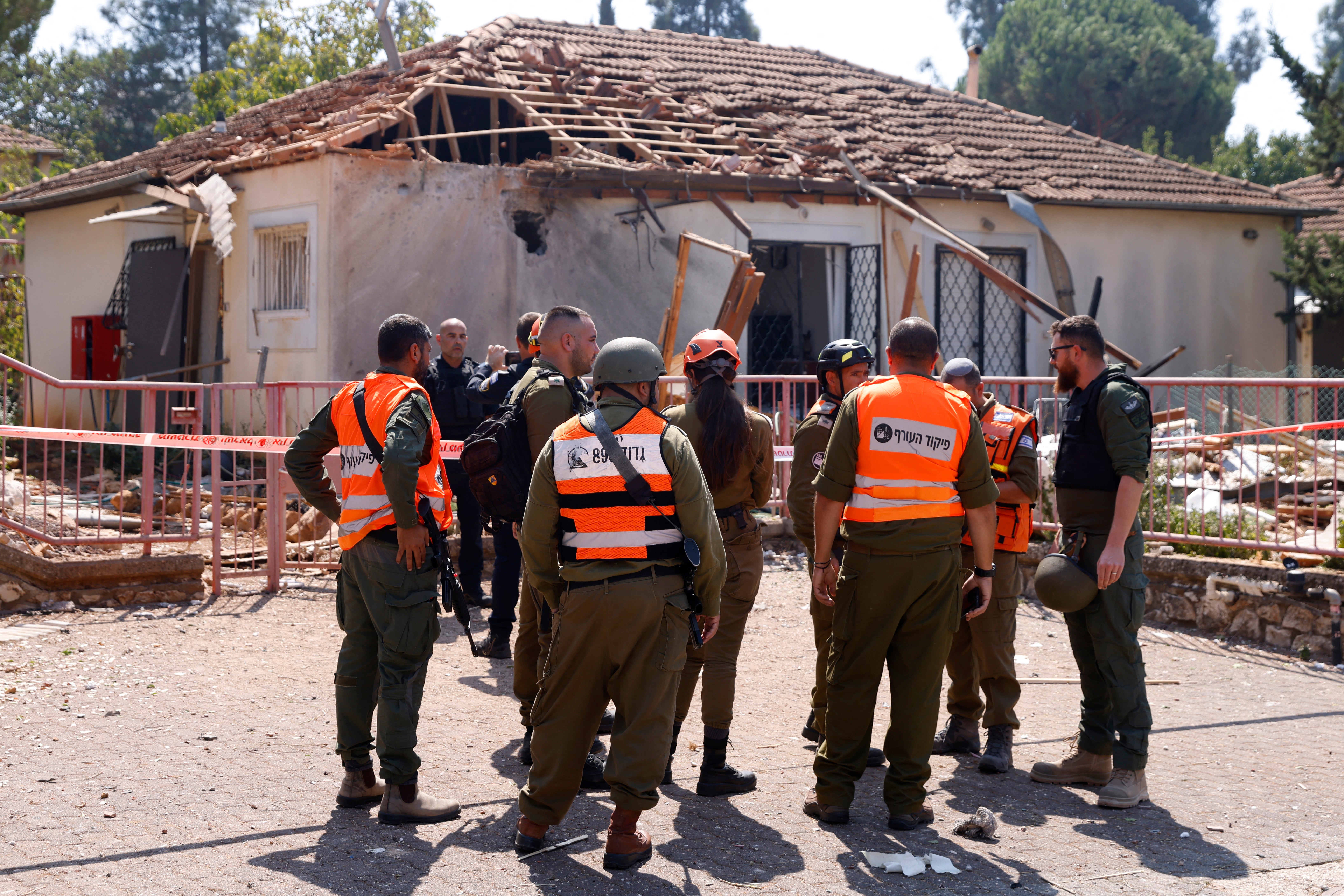
She continued: “I had a search online yesterday and the only alternative flight available was a business class flight for £4,600 to Dubai. I would then need to book another flight to London.” Rita says she and her family have discussed getting a flight from Turkey but that first means an eight-hour taxi through Syria.
President Biden said on Wednesday he remains hopeful a way can be found to prevent further bloodshed, but acknowledged “all-out war” is still possible.
The Iranian-backed Hezbollah group’s latest strike, it said in a statement, had targetted the Mossad spy agency headquarters in a Tel Aviv suburb “in support of our steadfast Palestinian people in the Gaza Strip ... and in defence of Lebanon and its people”.
It blames Mossad for the recent assassination of senior commanders in the southern suburbs of Beirut, the Lebanese capital, as well as the explosion of electronic pagers and walkie-talkies last week.
Hours later, Israel announced it was carrying out more “extensive strikes” across southern Lebanon and the Bekaa Valley running along the border with Syria.
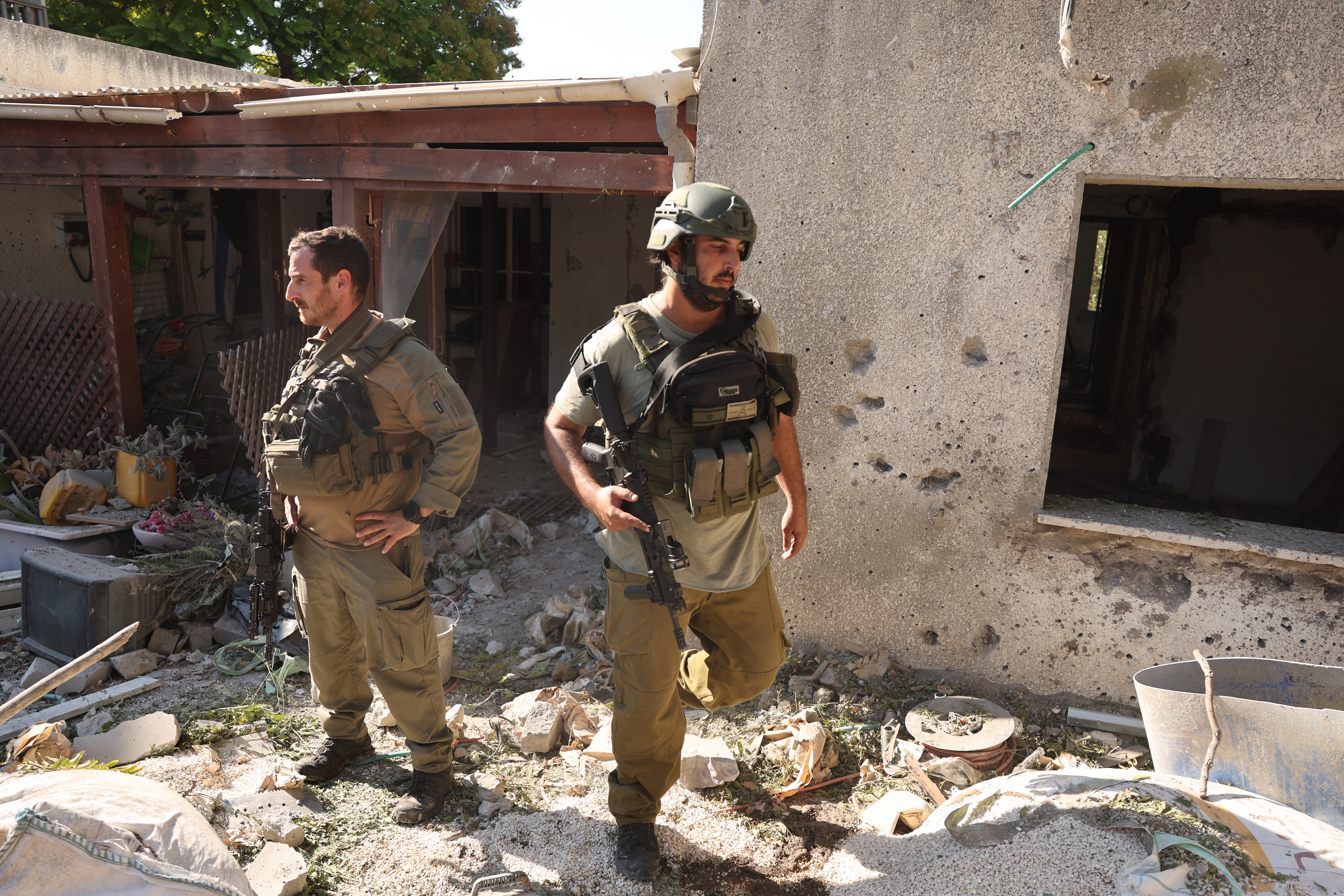
Hospitals in Lebanon have been filled with the wounded since a sharp intensification of bombing on Monday which was the country’s deadliest day since the end of a 1975-1990 civil war.
Lt Gen Halevi’s comments came after the Israeli military began activating reserve troops to send to its northern front. Israel’s military said it would call up two reserve brigades – which could consist of 6,000 to 10,000 troops – for “operational missions” in the north.
Israel has expanded the zones it has been striking since Tuesday night, with attacks for the first time on the beach resort town of Jiyyeh just south of Beirut and Maaysrah. The strikes also took place in Bint Jbeil, Tebnin and Ain Qana in the south, the village of Joun in the Chouf district near the southern city of Sidon, and Maaysrah in northern Keserwan district.
In Beirut, thousands of displaced people who fled from southern Lebanon were sheltering in schools and other buildings. More than 90,000 people have been displaced in Lebanon since Monday, the United Nations said on Wednesday.
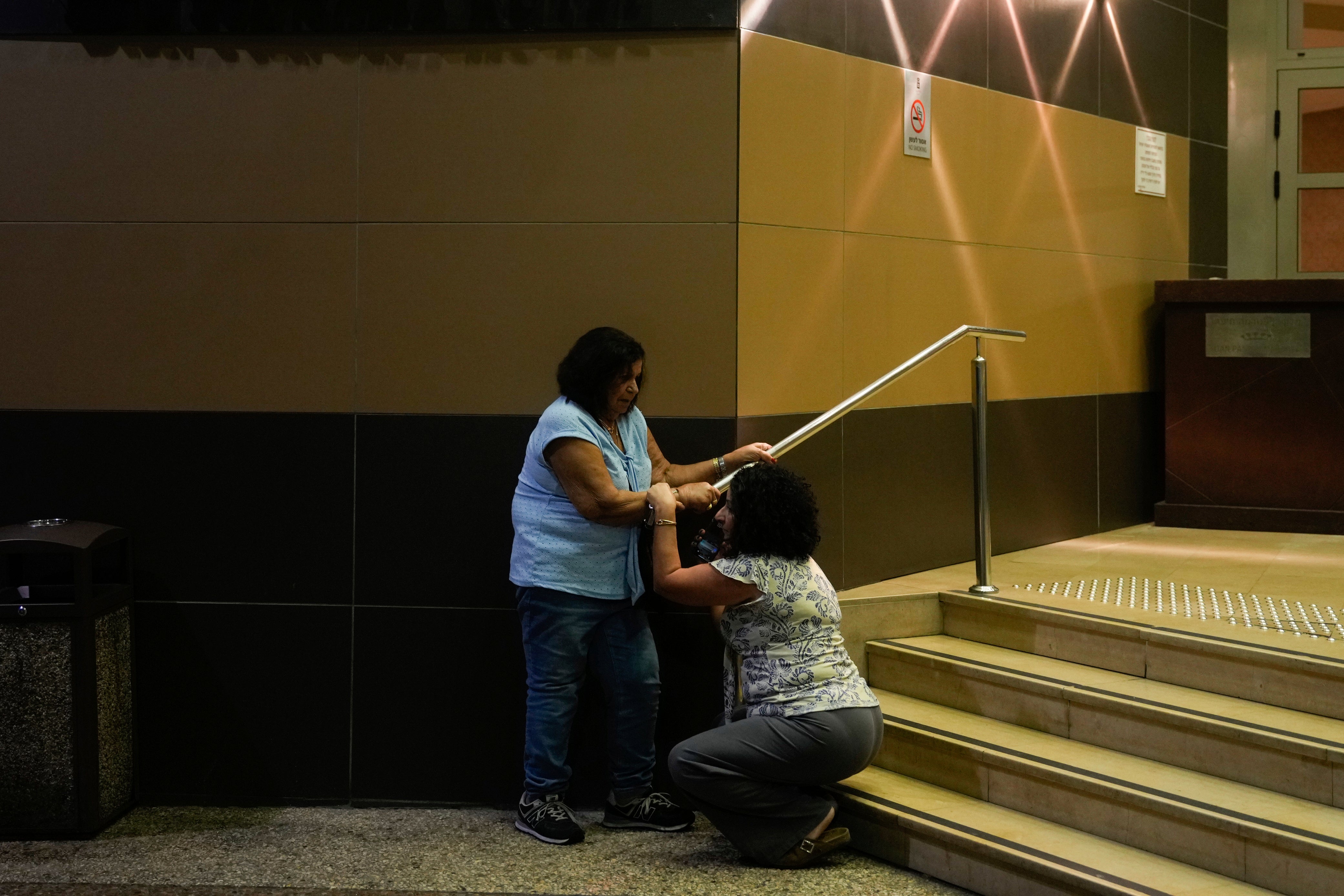
This is in addition to the 111,696 people who have been displaced since October 2023. In northern Israel, about 60,000 people so far have been evacuated because of near-daily attacks by Hezbollah in Lebanon since October.
Hezbollah began to fire across Israel’s northern border on 8 October last year, a day after fellow Iran-backed Hamas launched a deadly attack from the Gaza Strip into Israel, killing around 1,200 people and taking 251 hostage, around half of which remain in Gaza.
The subsequent Israeli aerial and ground assault in Gaza has killed more than 41,000 Palestinians, according to the latest update from the local health ministry in the Hamas-run strip, and forced more than 90 per cent of the enclave’s population to flee their homes, many on multiple occasions.
Local officials in Gaza say the extent of Israel’s attacks on the enclave has lessened in recent days as Israel shifts its focus to the Israeli-Lebanon border and Hezbollah, at least temporarily. But Palestinians are still being killed. At least a dozen died on Monday, while 24 were killed on Sunday and 40 a day earlier, according to a civil defence spokesperson.
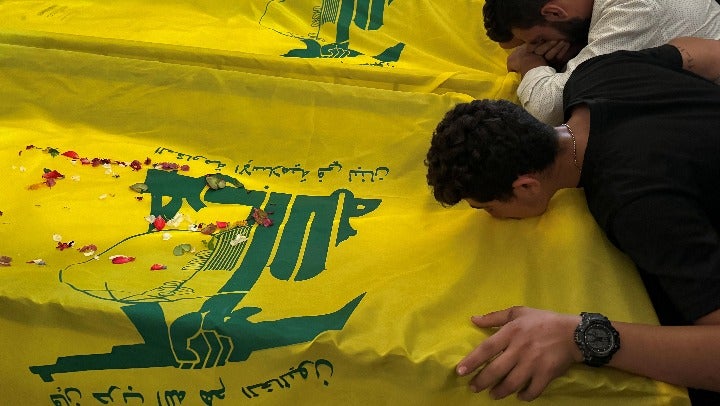
Hezbollah says it will not stop firing rockets at Israel until they halt their war on Gaza.
Israeli prime minister Benjamin Netanyahu is heading to New York for a speech on Friday.
Reuters and Associated Press contributed to this report
Subscribe to Independent Premium to bookmark this article
Want to bookmark your favourite articles and stories to read or reference later? Start your Independent Premium subscription today.
Join our commenting forum
Join thought-provoking conversations, follow other Independent readers and see their replies
Comments